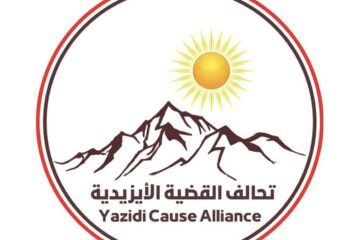Iraqi Court Issues Arrest Warrant for Prominent Ezidi Activist Murad Ismael
Murad Ismael, a prominent Ezidi activist and co-founder of the Sinjar Academy, is facing an arrest warrant issued by a court in the northern Iraqi province of Nineveh. The warrant follows his outspoken criticism of Iraq’s Minister of Migration, Evan Faeq Jabro, and the Ministry’s handling of the ongoing crisis faced by Ezidi internally displaced persons (IDPs).
Ismael has been a vocal advocate for Ezidi rights, particularly concerning the plight of Ezidi IDPs displaced by the ISIS attack on Shingal (Sinjar) in 2014. Despite the territorial defeat of ISIS, thousands of Ezidis remain displaced, living in camps under poor conditions, without adequate security or support from the government. Ismael’s criticism focuses on the Ministry of Migration’s failure to address these issues and provide meaningful assistance to the displaced Ezidis.
The arrest warrant, issued by a court in Mosul, stems from a complaint filed by the Ministry of Migration, accusing Ismael of insulting Minister Evan Faeq Jabro. Ismael believes that the charges are politically motivated, aimed at silencing critics who expose the Ministry’s shortcomings. He asserts that the arrest warrant was issued without prior notice or an opportunity to defend himself, which he claims is a violation of legal procedure. Ismael shared his frustration on social media, stating, “If they think I will back down from revealing the truth about the Ministry’s failures, they are mistaken.”
Ismael’s case has sparked outrage among the Ezidis, with various Ezidi organisations and activists condemning the arrest warrant as an attempt to stifle dissent. One prominent organisation, the Free Ezidi Foundation (FYF), called the Ministry of Migration “one of the WORST ministries” since the fall of Saddam Hussein’s regime in 2003. The FYF accused the Ministry of politicising the assistance process and failing to support displaced Ezidis effectively.
In response to the arrest warrant, Ismael maintained that he would not be intimidated. He is prepared to hire legal representation and appear before the Iraqi judiciary, but he expressed concern over the potential political and security risks involved, particularly for those criticizing the government. The political and security situation in Sinjar remains unstable, and being portrayed as a target of the judiciary could put Ismael and other activists at further risk.
Many have speculated that this move could be an attempt to prevent Ismael from participating in upcoming parliamentary elections, slated for November 2025. While the Ministry of Migration has not issued an official comment on the arrest warrant, it did recently announce a step to support Ezidi women by exempting them from age and grade requirements for higher education admissions.
Ismael’s case highlights the ongoing struggles of the Ezidi people and the challenges faced by activists pushing for justice and accountability in Iraq. The arrest warrant not only draws attention to the inadequacies in addressing the Ezidi IDP crisis but also underscores the broader issues of freedom of expression and political persecution in the country.
As Ismael faces these legal challenges, the Ezidis remains united in its demand for justice, improved conditions for displaced persons, and accountability from the Iraqi government.


0 Comments